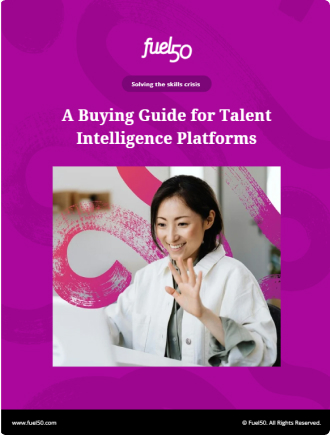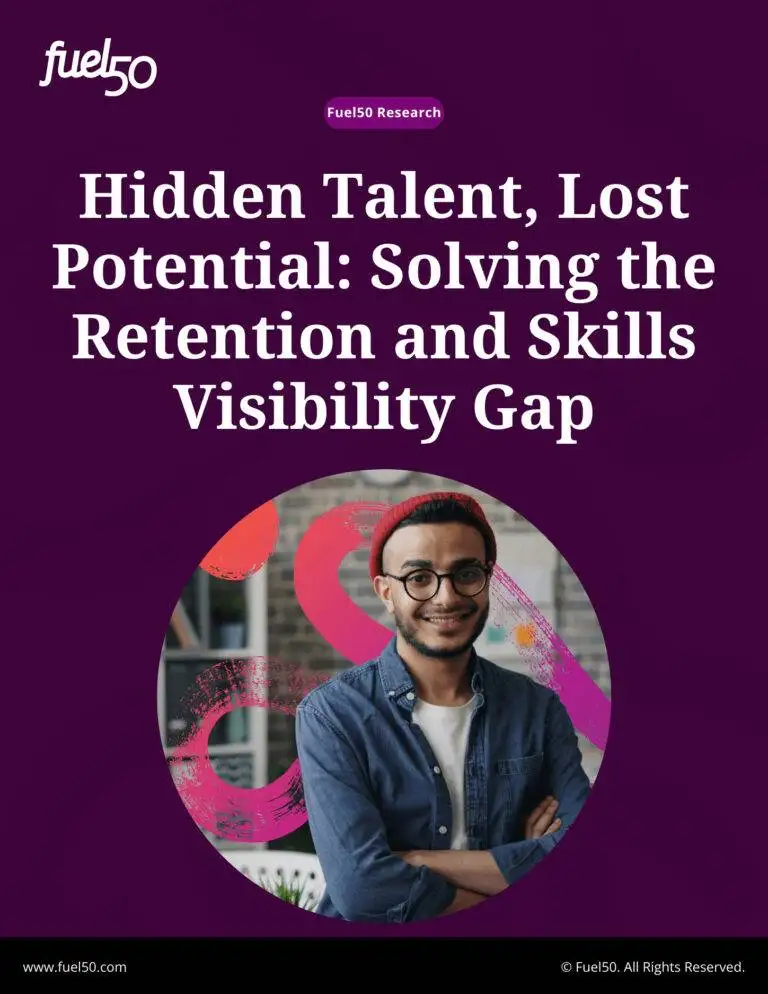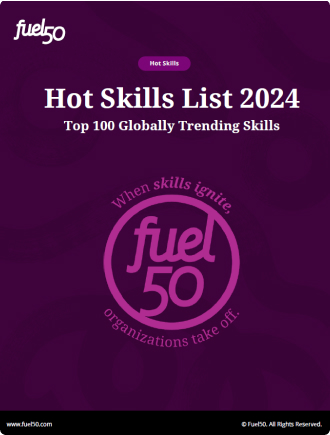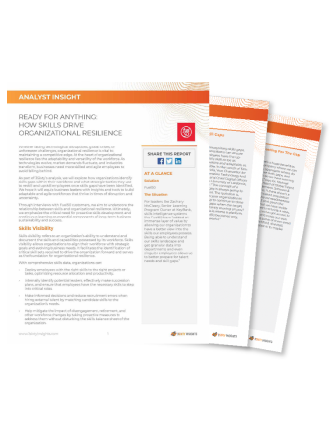Learning has always been a widely discussed topic among organizations, but why do so many companies fall short? In this episode of the Talent Experience Podcast, our guest David Creelman is joined by John Hollon to discuss all things learning and development.
David is the CEO of Creelman Research, and his consulting involves helping HR professionals build analytics into their everyday work. Find out more about the struggles of traditional learning and development, how to realistically implement training, and the importance of carving out time for learning!
Tune in to David’s episode below, at tlntx.co/e48 or wherever you like to podcast!
Here’s how the conversation went… This interview has been edited and condensed.
John Hollon: Hello, I’m John Hollon and welcome to the Talent Experience Podcast. Today’s guest is my friend David Creelman. David is CEO of Creelman Research based primarily in Toronto and partly in Kuala Lumpur. He’s internationally recognized for his clear and pragmatic insights on the role of Human Resource Function in business and his cutting-edge research on the latest issues and challenges facing HR. This insight was honed over the decades working on projects with organizations such as the Corporate Research Forum in London, the works Institute in Tokyo, the KRONOS Workforce Institute in Boston, the Center for Effective Organizations at the University of Southern California in Los Angeles, and The Hague group, both in Toronto and Kuala Lumpur. David has also collaborated with leading academics such as Henry Mintzberg in leadership development, Edward Lawler, who wrote built to change, and John Boudreau, who digs a lot into the future of work. David’s books include management for Scientists and Engineers why managing is so hard to get and if it will get better. The CMO of people manage employees like customers with Peter Navin and lead the work navigating a world beyond employment with John Boudreau and Ravin Jesuthasan. David won the Walker Award for his work on boards in HR and spoke at the World Bank in Paris on ISO standards for HR reporting. Much of his current consulting involves helping HR professionals add analytics into their real work. And you can find out a lot more about David and his work at CreelmanResearch.com. So, David, how are you?
David Creelman: Yep, I’m good! Everything’s going along smoothly.
John Hollon: Great. Great to hear, and glad to be chatting. Let’s get started. And let me just ask you, there seems to be a big focus right now, we were chatting about this a little bit last week, on employee training, reskilling, and upskilling. And you hear a lot of talk about it. But as someone who watches this pretty closely, what are you seeing right now?
David Creelman: Well, I’ll tell you a personal perspective, which is I’ve gotten frustrated with most traditional learning. And quite a broad range of things that I want to tell you the fundamental issue that’s bothered me is that typically, training is seen as we’ve got some learning objectives, and we’re going to pour some information into people’s heads, and then we’ll test them at the end to see if they have accomplished or we have accomplished those learning objectives. And that’s the standard model for doing things. Now, in my work with Henry Mintzberg, out of McGill and Dr. Jonathan Gosling, out of the UK, they questioned this approach to learning, that the idea that learning is that we’re pouring in information. And they suggest that really, we should be trained to draw out information from people, and particularly when we’re talking about managers. Now John, apologies if I’m going on a bit too long here, but just let me illustrate the point. If you’re teaching someone how to use a particular machine, at that point, you’re pouring knowledge in and you know, do A then do B, then do C and then the machine will work. But for so much of the training, we’re really interested in, in terms of being a more effective professional, being a better manager. We’re really far better drawing the information out of people by getting them to reflect on their experiences, rather than us trying to download a lot of information that they often don’t remember or can’t use.
John Hollon: Well, you know, I wonder about these terms, reskilling and upskilling are fairly new. Is it really so different from normal training? Or do they really have different components to them? Because you’re seeing right now a lot of talk about people in saying oh, we need to reskill our workforce because you know, skills they have are, you know, within two years that they need to get a new set. I’m here at HR transform in Las Vegas, I just heard them talking about that this morning, that someone’s skill set only lasts about two and a half years before they have to be reskilled again. What’s your take on that? Cause I know you’ve done with training a lot and I’m trying to get a sense of what’s the big difference between training and reskilling and upskilling, and all of these different terms now that are so new in the current environment.
David Creelman: Yeah, and I don’t think the terms are particularly helpful. I think the important concept is, people need to be continuously learning. I think that is true, there is a lot that’s changed, and there’s a lot we need to learn. I don’t like the framing of it that, you know, we need to reskill them, or we need to retrain them. We need to create the conditions for learning, but it’s very much on the individual to continuously learn. And you see, just, for example, when we went from in person work to remote work, there was a whole lot that people needed to learn everything from the kind of technology, how they manage virtual interactions, to how they balance their life working from home. People learn that by and large on their own, it wasn’t that we had to reskill them, we just had to create a supportive environment where people would learn and encourage learning. So, while I fully agree with the idea that people need to learn continuously, and we should create an environment that supports learning continuously, I don’t think that reskilling is a particularly new idea. And I like the idea of putting the onus more on the individual than the idea that the corporation is going to tell them what they need to learn.
John Hollon: Do you think that organizations are really serious about this, because I told you the story about my younger son who was working in the car industry out in Southern California, where we live, and when he was working on his MBA, he was working part time at this car place. And they were given him all sorts of training. And I was surprised because companies traditionally over the last, I don’t know, 10 years haven’t done training much. Unless it was pointing somebody to a website or a video or you know, a YouTube video or something along those lines. So, of course, when he was ready to get in, get a real job, they didn’t have a real job. And he took all that training that they’d spent for and took it over to another auto industry company and he is happily working there now. But when I hear about this upskilling and reskilling and all of these sort of training related things, I wonder, are companies really truly serious? Is this something that because of the pandemic and the lockdowns over the last two years, they’ve sort of had a moment where it’s become clear to them that they need to do this? Or is it really a lot of talk that’s not really followed through with action, and more importantly, dollars? Or is it something else entirely?
David Creelman: Yeah, well your son’s story is very interesting. It just points to the kind of disconnect that happens in organizations where they say we believe in training, we believe enough, we’re going to fund it, and they roll it out, but they don’t connect the dots in terms of who they’re training for what and what jobs they have. But actually, good for them that they are providing the training and put to good use someplace in the economy. But to me, there’s enormous variation between organizations and how seriously they take training. And almost all organizations would say we believe in upskilling, and training and learning environment, but many of them don’t invest in it. And actually, it’s often more about not investing time as opposed to not investing money. It’s not so much that they’re not willing to pay for a training program as they don’t really want people taking time off work or the organization. And I’ve seen this quite often, or an organization will pay for learning, but then the person doesn’t show up because they’re just too busy. So again, it’s a disconnect between what the organization says is important and how they act on a week-by-week basis.
John Hollon: How important is training, reskilling, upskilling in retention, in retaining employees and making them feel like they have a really solid career path in the organization that they are currently in?
David Creelman: Yes, let me first of all, it’s not going to replace things like having competitive compensation, and having a reasonably friendly work environment. So, let’s not pretend that oh, well, we’re going to treat people badly, but we’ll train them. But I think it’s very important and it doesn’t necessarily need to be connected to our career path. I mean, it’s ideal if people see there’s a career path for, but people generally are just happy to learn new things, there are many, many people who find it highly motivating to be continually exposed to new things. So, I think it is, you know, as we say in HR, the employee value proposition, I think it is part of the employee value proposition that if you’re in a workplace and you’re continually exposed to new things, and you get a chance to learn, I think that does in fact, play an important role in retention and motivation and keeping people energized.
John Hollon: Are you hearing more from your clients on this topic?
David Creelman: Well, you know, it’s hard to say because it’s not a statistically random sample by any means. So, I don’t know if there is, is more or less, but there certainly is, I think, and there always has been quite a bit of interest in training. I think people are not always particularly thoughtful about how they deliver that training. So, I’ve seen people do things like they say, “Well, we’re just going to get LinkedIn Learning.” And then almost feels like they’re just ticking a box where they can say they’ve done something, not that they’ve really thought about what’s going to be most effective for their people. No particular offense on LinkedIn Learning, it’s just it’s one of the well-known and popular ones.
John Hollon: True, well, that sort of leads to what I was gonna ask you, what advice would you give to an organization that suddenly seems to get the light bulb to go off, and are going to make a big jump, they talk about wanting to make a big jump into training and reskilling and doing all of these things? What kind of advice would you give them starting that out? So, they can continue to make it last well beyond the initial excitement stage?
David Creelman: Yeah, well, I think one of the most important things is to focus on this idea of carving out time, figuring out how much time you can realistically carve out and making that a clear commitment, and measuring that commitment. So, I know IBM, at one point said every employee has to have 40 hours a year of training. And that was compulsory. Now, frankly, if you’re in IBM and that kind of environment, 40 hours a year of training is nowhere near enough. But the point of having it sort of written in stone, that there’s 40 hours compulsory training, made it easier for people to carve out time where they say I need to be spending time learning. So, it creates some time, and it also creates the culture sort of demonstrates that yes, we do believe in setting time aside for training. So, I might start with being realistic about how people are going to find the time to take training. And again, I think I might actually focus on having managers involved in developing their employees. So, there’s a real tie in between what managers want from employees on a day-to-day basis in terms of production. But they’ll also be judged on what they’ve done to help that employee develop, you want to make that part of their job. And I think managers again are motivated by that, not only are people motivated to learn, but they’re also motivated to help other people learn. So that’s a lever you can pull is people’s desire to help develop others.
John Hollon: Well, I’ve been seeing to data and studies that sort of indicate that companies have finally woken up to, hey, we’ve got all of these people in the last two years haven’t been particularly great. They’ve been chaotic in many ways. And we have a lot of people who desperately need to be trained, because their skills just aren’t up to snuff and what we need now. Now, you would think that they would have been doing that sort of training all the way along to keep the people up and skilled, but when you have people working remotely and you know, sort of the whole office culture has kind of I don’t wouldn’t say it’s completely gone away, but it’s certainly been battered. How do you deal with that? You know, because that’s a big thing. And you know, and I am seeing studies saying half of the workforce, two-thirds of the workforce in desperate need of training, or else we’re going to have to go out and rehire all of these spots.
David Creelman: Yeah, well, by the way, on the remote side, I’ve done lots of remote training, and I think it works very well. In some ways, remote training can be better than in-person training. So that’s just on the remote side. I guess I wouldn’t panic in the organization you can imagine up at the CEO level and the board level hearing this oh, we’ve got to reskill half our people, and all this kind of thing creates a lot of sort of unfocused anxiety. And I really just want to get down to the department-by-department sort of manager-by-manager level, and just figure out you know, where are the big issues and why are we not addressed asking them if somebody needs to… Well, in fact, I was talking to somebody in demand planning the other day. And she needed to learn to use pivot tables. So once that need was clearly identified, she just went out and learned pivot tables. There’s there, people she knew who could help her, there are YouTube videos online, she can play around by herself. So that was a clear skillset, she needed very specific skill set that she needed. But it didn’t require some kind of revolution, to make it happen. She just needed to have knowledge of what she needed to learn some space to be able to learn it and the self-motivation.
John Hollon: So, if I’m a CEO, and I want to really make sure that my workforce is training and learning and growing, do I have to make sure that we have a training manager dedicated to it? Or is that a function that HR can handle as part of their portfolio?
David Creelman: Yeah, I don’t care whether training reports directly into a chief learning officer to the CEO. Or if it goes to HR, I would tend to have it to HR, because I see connected to all the other things HR do I mean, John, you’re an expert on how people move through careers in succession planning, that’s all related to training as well. So, I could, I’m tempted to have them in the same department. But maybe the thing I would focus on is that I really want to serve leadership lead with the training manager, providing expertise and support a center of excellence. I wouldn’t try to pass it off and say, Well, we’re gonna run the business, you do training, and I wouldn’t want those two things divided.
John Hollon: Well, David, you know, these things always go really quickly. And we are getting towards the end here. And so, there’s a question we ask everyone who comes on the Talent Experience Podcast, because at Fuel50 we wholeheartedly believe everyone should have a job that they really are passionate about. So, David, what do you love about your job and what you do?
David Creelman: Well, because I do a lot of research and writing, you know, as well as the consulting side. And because I don’t have a boss, because I’m my own boss, I’ve been able to pursue the topics that I’m interested in to as deep and extend basically as I like. And that also involves collaborating people like Mintzberg and Boudreau, and it’s such a privilege to be able to work with them. And it’s a mechanism for me to pursue these interests. So, I’ve got some of the fun of being an academic without any of the responsibilities.
John Hollon: Well, David, thank you so much for taking the time to be with us today on the Talent Experience Podcast. We really appreciate you being here.













